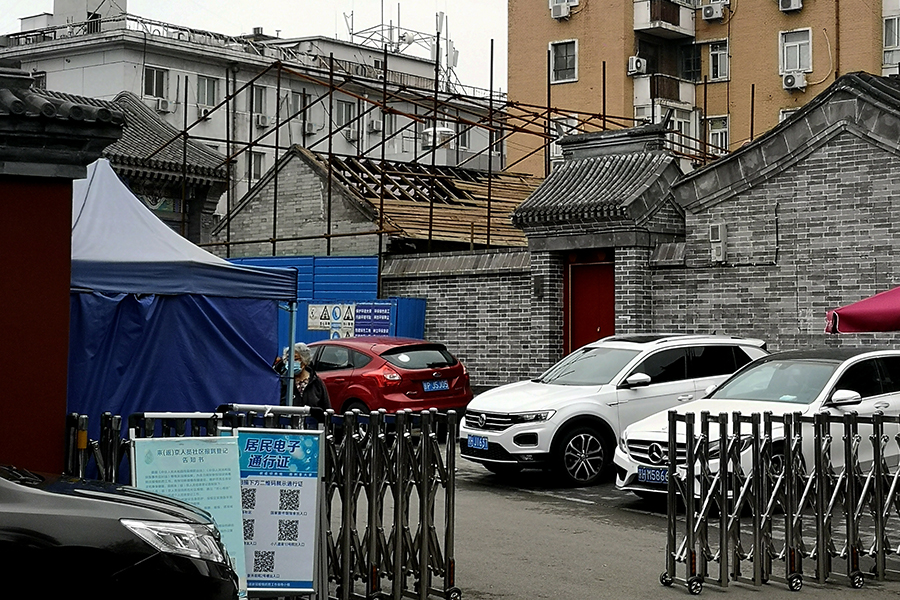Theaters adapt to dramatic change of scene


Born in Baoding, Hebei province, Gao enjoyed watching comedy movies as a child, and one of his favorite film stars is Hong Kong-born Stephen Chow.
His mother took him to a local arts training center, where Gao studied xiangsheng as a form of entertainment. However, she did not expect him to choose it as a career, as the prospects did not appear promising at the time.
Xiangsheng was first staged in Beijing in 1862, when performers began attracting audiences in the Tianqiao area of the capital, a place where street players gathered to perform a variety of shows, such as acrobatics, Peking Opera and pingshu, a traditional Chinese form of storytelling.
Performances of xiangsheng usually feature two performers clad in traditional long robes, standing behind a wooden table and engaging in witty banter, although there are solo productions and those involving three players or more.
Familiar issues, including troubled family relationships and social topics, usually form the main theme of the humorous conversations, the aim being not only to entertain but also to educate. A xiangsheng performer's reservoir of talent runs deep and includes allusions, innuendo, puns, songs, tongue-twisters and liberal doses of fantasy.
Classmates gave up
Young players study with a xiangsheng master for three to five years and perform with the teacher to gain experience in mastering onstage techniques and communicating with an audience. They then strike out on their own. The art form's basic skills include shuo (talking), xue (imitation), dou (teasing) and chang (singing).
"I enjoy making people laugh, and I learned fast," said Gao, who started studying xiangsheng at the National Academy of Chinese Theatre Arts in 2003.
After graduating, 80 percent of his classmates gave up performing xiangsheng, but Gao persevered. To make a living, he did part-time work as a shopping guide, wedding host and house painter.
In 2004, he started to perform xiangsheng regularly at the Chaoyang Cultural Center in Beijing, where he gained a large fan base. With his original pieces, Gao combines the traditional wit with jokes inspired by daily life. His onstage improvisation appeals to young audiences.
In 2008, he founded the Hip-hop Crosstalk Club, along with a dozen young xiangsheng performers, including You Xianchao, Gao's longtime partner. Gao found fame and more fans through appearances in television shows, movies and reality productions.
























